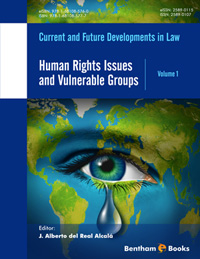Abstract
In this chapter, we address the evolution of the legal protection for victims of terrorism in Spain over two centuries. Due to the escalating terrorist violence that affected Spain in the second half of the 20th century, we will highlight the fact that lawmakers, up until the ‘80s, adopted a punitive approach to terrorists and, consequently, delayed the adoption of measures of assistance and reparation for victims of terrorism. In addition, we will stress that, from the '80s of the 20th century, thanks to the demands of a number of survivors and relatives of victims of terrorism, lawmakers became aware of the needs required by victims of terrorism and tried to meet the most urgent ones via compensatory legislative measures, specifically dedicated to this collective. With this in mind, we will show how Spanish lawmakers have taken a path to the adoption of specific legal protection for victims of terrorism, differentiating this vulnerable group from other victims of violent crime. However, although needs of victims of terrorism generated by the personal dimension of the crime of terrorism have been exhaustively met, we will highlight that the public dimension of the harm caused by terrorism creates certain needs that have not yet been fully met by lawmakers in Spain (and in the rest of the world).
Keywords: Public dimension of harm, Public recognition, Solidarity, Specific legal protection, Comprehensive reparation, Constitutional State, Victims of terrorism, Vulnerable persons, Vulnerable groups.













